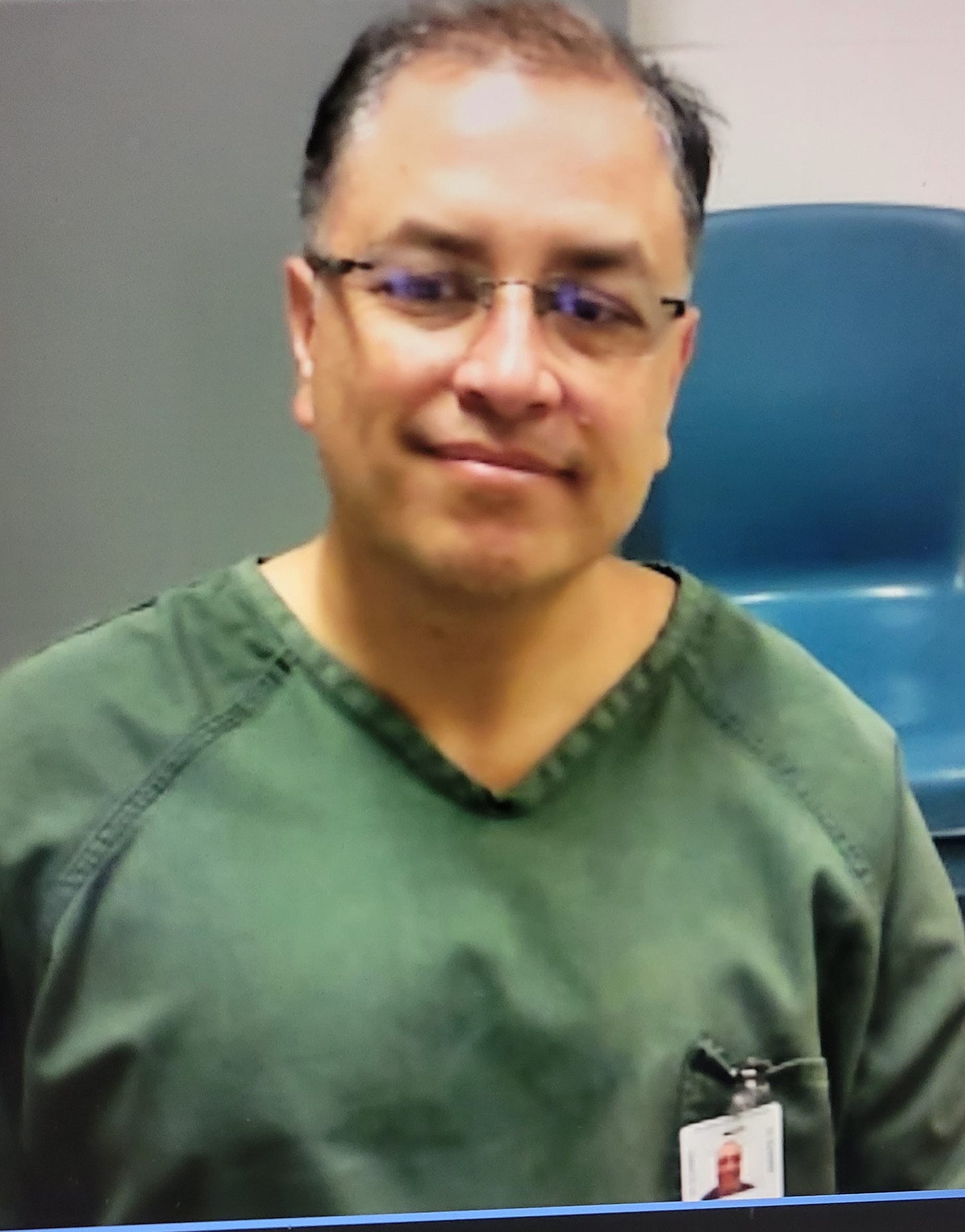An Unacceptable Legal Fiction
the personal right to decide if counsel is a benefit or a detriment
Half a century ago, the United States Supreme Court ruled in Faretta¹ that a defendant has the right of autonomy when it comes to choosing between legal or self representation in criminal proceedings. The Majority determined that since it is the defendant, rather than the lawyer, who will live with the consequences of a conviction, it is therefore the defendant's right to decide if counsel is a benefit or a detriment, and thereby proceed accordingly. As Justice Stewart explained, "whatever else may be said of those who wrote the Bill of Rights, surely there can be no doubt that they understood the inestimable worth of free choice." In dissent, however, Justice Blackmun quoted the proverb that "one who is his own lawyer has a fool for a client." Ultimately, a dilemma and choice I recently confronted: whether to waive and otherwise forego the appointment of counsel and thereby represent myself in my current habeas proceedings.
In reading Faretta and its progeny it's clearly established that courts are hesitant to grant said autonomy to criminal defendants in the courtroom as they face accusations and otherwise fight for their respective liberty and lives. Courts consider it "disruptive," "time consuming," and otherwise a "degradation" to the integrity of the judiciary. But, so long as Faretta stands—autonomy and free choice is the law.
Admittedly, I wouldn't opt to operate on myself surgically, or choose to install electrical wiring in my home, or even take tools to my automobile or motorcycle without first receiving very specific instructions from a qualified mechanic. Experts in anything exist for a reason, which presents the question as to why any reasonably sane person would choose self-representation over the counsel of a trained lawyer in something as crucial as a criminal trial or appeal. As I considered this question, it occurred that in the vast majority of instances where experts are recommended or required, none of those instances are necessarily instances where the supposed "expert" has interests that are contrary to the patient-defendant-client-person in question.
For instance, consider a surgeon who openly sells human organs in Styrofoam ice-chests out the back door of his surgical clinic. How comfortable would you be asking such a surgeon to place you under anaesthesia and perform some needed operation or procedure? Likewise, would you leave your automobile with someone who operates an illegal chop-shop? Or, how about taking your financial statements or banking information to an accountant previously convicted of embezzlement? Obviously, these are all instances of criminality, and it's not probable that a convicted felon would be a member of a legal bar association, or for that matter assigned to an indigent defendant as legal counsel; nor am I suggesting that attorneys are criminals by nature. But even removing the element of criminality from the equation, let's say, instead of black market organ traffickers for surgeons or automobile butchers for mechanics, we're instead just referring to doctors who rarely get the diagnosis right and mechanics who never seem to fix the problem. In these instances, would you give such a surgeon, mechanic, or accountant that second chance?
A similar question, is then, if I'm not suggesting that lawyers are criminals, then, why did I just file a waiver of counsel with the district court? Because, idiocy is not a black or white thing—it's more like a sliding scale. In other words, I may be an idiot for choosing to represent myself; but, had I chosen to be represented by the Law Offices of the Public Defender (LOPD), based on my previous experience with their office and their general unwillingness to break ranks with their less-than-benevolent financial overlord—the District Attorney's Office—I would be sliding myself from idiocy into moronic masochism.
When the LOPD previously represented me on my first post-conviction, habeas petition the attorney assigned to me, admittedly, had zero experience in criminal law. Additionally, she didn't understand the intricacies and applicability of the Confrontation Clause, Crawford, or its progeny. She hadn't reviewed the trial transcript and admitted that she had no intention to do so. Which meant that she wasn't looking for errors or issues with potential merit, she was just going through the motions of giving another indigent client constitutionally "effective" representation so that she could get to the next name on her list. I wrote her over a dozen letters over the span of fourteen months. Every letter contained a litany of questions that went unanswered, and quite possibly unread. Moreover, I am unaware of a single prisoner who has received representation from the LOPD that was somehow different from what I just described.
Additionally, consider that the petition I recently filed with the district court required more than 1,500 hours of diligent research and effort. It required the analysis of more than 4,000 pages of trial transcripts, multiple "IPRA" requests for public information, and a petition for writ of mandamus from the state supreme court which yielded another 900 pages of pleadings. For an attorney to step in and offer any kind of reasonable representation that could potentially prove beneficial, would require a substantial amount of time and dedication—undeniably, time that a court-appointed attorney does not possess.
Which brings us to the very essence of the Faretta Court's reasoning (Justice Stewart): "[when] Constitutional safeguards for the protection of the accused [are set about] to deny him in the exercise of his free choice the right to dispense with some of those safeguards…is to imprison a man in his privileges and call it the Constitution." The Court looked to the Sixth Amendment, as well as the English and colonial jurisprudence that gave genesis to the same and concluded:
The Sixth Amendment does not provide merely that a defense shall be made for the accused; it grants to the accused personally the right to make his defense. It is the accused, not counsel, who must be 'informed of the nature and cause of the accusation,' who must be 'confronted with the witnesses against him,' and who must be accorded 'compulsory process for obtaining witnesses in his favor.' Although not stated in the Amendment in so many words, the right to self-representation—to make one's own defense personally is thus necessarily implied in the structure of the Amendment.
...The language and spirit of the Sixth Amendment contemplate that counsel, like the other defense tools guaranteed by the Amendment, shall be an aid to a willing defendant—not an organ of the State interposed between an unwilling defendant and his right to defend himself personally. To thrust counsel upon the accused, against his considered wish, thus violates the logic of the Amendment. In such a case, counsel is not an assistant, but a master; and the right to make a defense is stripped of the personal character upon which the Amendment insists.
...An unwanted counsel 'represents' the defendant only through a tenuous and unacceptable legal fiction. Unless the accused has acquiesced in such representation, the defense presented is not the defense guaranteed him by the Constitution, for, in a very real sense, it is not his defense.
Moreover, the Court observed that "it is not inconceivable that in some rare instances, the defendant might in fact present his case more effectively by conducting his own defense." In response to Justice Blackmun's dissenting jibe on the idiocy of self-representation, the Majority reminded that "[p]ersonal liberties are not rooted in the law of averages." And, "[i]t is the defendant, therefore, who must be free personally to decide whether in his particular case counsel is to his advantage. And although he may conduct his own defense ultimately to his own detriment, his choice must be honored out of 'that respect for the individual which is the lifeblood of the law.'"
Decades later, Justice Scala wrote in favor of Faretta, "I have no doubt that the Framers of our Constitution…would not have found acceptable the compulsory assignment of counsel by the Government to plead a criminal defendant's case."² Even though the acclaimed legal scholar and Justice was then writing on behalf of a Court that ultimately held that, "[n]either Faretta's holding nor its reasoning requires a State to recognize a constitutional right to self-representation on direct appeal from a criminal conviction." It was a decision that also stipulated that "[t]he States are clearly within their discretion to conclude that the government's interests in ensuring the integrity and efficiency of the appellate process outweigh an invasion of the appellant's interest in self-representation, although the Court's narrow holding does not preclude the States from recognizing a constitutional right to appellate self-representation under their own constitutions."
Because, it was the latter part, that permitted New Mexico to distance itself from its federal counterpart on this narrow point, since the state constitution establishes that, "[i]n all criminal prosecutions, the accused shall have the right to appear and defend himself in person." (N.M. Const. Art. II, sec. 14). A distancing the courts effectively accomplished a decade after Faretta in addressing the question of whether a defendant has an unqualified right to reject court-appointed counsel and represent himself on appeal. The New Mexico Court of Appeals agreed with a Texas appellate court and ruled that, "the right of an accused to reject the services of counsel and instead represent himself extends beyond trial into the appellate process."³
But, if this was the legal holding in place at the time when I motioned the state supreme court for the right of self-representation, why then was said right denied to me? In the furtherance of answering this question, I have requested copies of my initial motion from 2006, the government's response, and the Court's ruling so as to better understand why such a fundamental right was denied. Because even though the answer to this question may very well be water under the bridge at this point, as I'm once again seeking to exercise this same right it's necessary to know how the denial of my personal autonomy and free choice was denied so as to not fall into the same rabbit hole twice.
I'm not an attorney, and I may very well have a fool for a client as I waive counsel and face off against the Deputy District Attorney. But, time and again, I have witnessed the immense power and leverage that the District Attorney's Office holds over lowly public defenders trying to defend their "clients." This reality is in itself an "unacceptable legal fiction" of a propriety that does not exist as part of the American justice system. Moreover, I admit, that the State has both the bully-pulpit and leverage to keep the LOPD from properly representing its indigent clients. What it does not have, however, is the more than 1,500 hours of acquired knowledge and work into a fundamentally flawed conviction to stand upon as it defends its position; nor does its "leverage" extend to me, because the District Attorney's Office is not my less-than-benevolent financial overlord who I depend upon for next year's budget.
FOOTNOTES:
1. Faretta v. California, 422 U.S. 806, 95 S.Ct. 2525 (1975)
2. Martinez v. Court of Appeals of California, 528 U.S. 152, 120 S.Ct. 684, 145 L.Ed.2d 597 (2000)
3. State v. Lewis, 1986 NMCA 38, 104 N.M. 218, 719 P.2d 445






